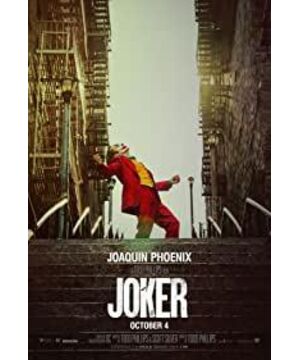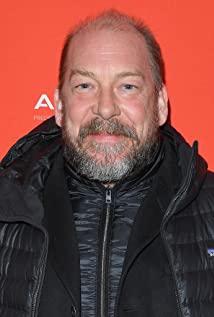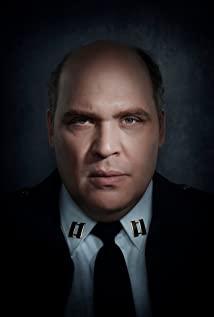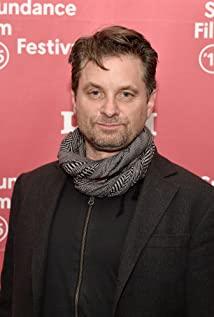Origin of Evil
In my personal impression, it seems that there has never been a movie that seriously traces the origins of this DC supervillain like "Joker", although the villain was born in 1940 and is the eternal enemy of Gotham City hero Batman. Searching past memories, there is only a handful of information, he was a failed comedian, his wife tragically died, and he accidentally fell into a caustic solution, but this is only one version of the origin story.
In the 2008 movie "Batman: The Dark Knight", the Joker played by Heath Ledger also told two stories of his past, abused by his father as a child and betrayed by his wife, but we don't know the truth .
This super villain comic character known for his madness and evil seems to have great room for shaping, as if everything he said can be true or completely false. Believe it or not, the decision is up to you. You can even think that the clown became the clown because of various unfortunate experiences. Of course, you can also think that he is born evil, born anti-human and anti-social, a psychopath who is keen on chaos and terror.
"Joker," by Joaquin Phoenix, offers a relatively complete origin story of the Joker, and also reveals how a mentally ill person becomes a deranged criminal.
Arthur, who suffers from mental illness, makes a career as a street clown, lives with his disabled mother, and aspires to one day become a great comedian. But in his life, nothing seems to be going well.
First, I was beaten by street gangsters at work, and then I was pushed out by my colleagues and lost my job. I was scorned because I laughed when I was emotionally fluctuating. When I met the girl I liked, I could only relate to her through delusions. Thought he was Thomas Wayne's illegitimate child through his mother's letters but was denied, and when he looked through his mother's mental history, he found a record of his abuse...
Betrayed, ignored, beaten, taunted, with the help of a gun, he finally releases himself gradually, and the way of release is revenge, killing a colleague, killing his mother, killing the comedian he once admired, and then Totally a clown.
A neglected figure on the fringes of society has become the focus and even sought after through violence and madness. This is an undoubted tragedy for both individuals and society.
A large part of the Joker's charm comes from his mystery. He doesn't have any superpowers, nor does he commit crimes for money, sex, etc., but simply through wisdom and an understanding of the weaknesses of human nature.
Now that the Joker's past has been lifted, whatever the quality and depth of the story, it's a bit of a sabotage for the character's mystique.
And how does a clown become a clown? The movie gives two clues:
1. Personal reasons, troubled by mental illness, depressed, frustrated, stimulated by life experience...
2. Social reasons, the economic downturn in Gotham City, the polarization between the rich and the poor, and a large number of people at the bottom began to demonstrate and riot...
I believe the director meant something in the movie, because both leads ended up pointing to the same person, Thomas Wayne.
Thomas Wayne denied that Arthur was his child, and told him that his mother was delusional and he was adopted, and Arthur did find his mother's medical records at the Arkham Asylum. Maybe it can confirm Wayne's words. But then Arthur saw a photo of his mother when he was young at home. The back of the photo was Thomas Wayne's signature. At this time, Arthur's life experience was reversed again. But because of Arthur's paranoia, his background began to become confusing again.
As we all know, once the gap between the rich and the poor in the whole society is too large, it will inevitably produce such results - the crime rate will increase, social unrest will increase, and populism will rise.
How is it performed in the movie?
Arthur killed three white-collar workers who worked in the Wayne Group, and was instead hailed as a hero;
Arthur dressed up as a waiter and went to the cinema to meet Thomas Wayne. Outside the cinema was a crowd of demonstrators, while inside was a black-and-white movie with elites in neat suits. I don't believe this contrast was choreographed by the director unintentionally.
Thomas Wayne is in control of a big conglomerate and is running for mayor. I believe that in the film he represents not just a person, but a symbol about wealth and capital and the power and status derived from it , fame, etc. accessories.
The intention of the director is already very obvious. When we trace the origin and evil of the Joker, we are also tracing the evil of capital. As Marx said, capital came to the world, from head to toe, every pore dripped with blood and dirty things, and this evil created the clown in the movie.
dark art
In the process of watching "Joker", I thought of Norwegian expressionist painter Munch and his representative painting "The Scream" more than once. Munch's life was plagued by family problems and illnesses, and he summed up himself in his later years, "Illness, madness and death are the angels around my cradle, and they continue to accompany me throughout my life."
And "The Scream" was rated as "the most uncomfortable work in the history of modern art" . When appreciating this work, you can clearly feel the rather strong dark tendency in the picture.
In contemporary art, dark art works have long become an important part that cannot be ignored. These works present a strange, morbid and distorted state, and at the same time express the general negative emotions of the author and human beings, such as sadness, despair, loneliness... But you also It must be admitted that sometimes we are attracted to these works with dark tendencies, because people are inherently imperfect, everyone will have negative emotions, and once the negative emotions accumulate to a certain level, they will either collapse or fall into place. go astray.
Arthur Frank, the protagonist of the movie "Joker", is bent on becoming a successful comedian, but in fact, he may never be able to because of his uncontrollable laughter, but if he changes his mind and becomes a contemporary artist, Maybe a better option.
Movies are classified as category 8 art, and the movie "Joker" can be counted as dark art in category 8 art. Joaquin Phoenix's grotesque laughter has a strange contagion, perhaps when watching the movie. I don't think so, but at some point at the end of the movie, his laughter will echo in his head, as if full of stamina.
And his weird smile also represents many negative emotions, such as depression, tension, anxiety, disappointment, etc., so grotesque, it is undoubtedly very suitable for the role of the clown. This is also a great test and challenge for actors. Although they are all funny, they must make the audience feel the difference, and at the same time, they must devote themselves to this kind of weirdness. It is not only a question of acting skills. This requires tremendous mental and willpower.
Plus, it's a very good setup to have Arthur Frank with paranoia, which represents detachment and desire, desire to be famous, desire to be the center of attention, desire for good love, desire to be out of the realm of reality, which makes the film between true and false The fake influences the emotions of the audience, and also prompts the protagonist Arthur to gradually go crazy under the contrast between fantasy and reality.
evil aesthetics
The reason why people are attracted to movies is largely because they can see things that cannot be seen in reality. Of course, everyone likes to watch beautiful and moving stories, but there must be many viewers who like to watch violence, weirdness, and horror.
In the introduction of many action movies, we can often see the term "violence aesthetics", which is mainly manifested in the use of aesthetics to present violence, create beauty and poetry, and reduce people's discomfort when watching violent pictures . Quentin, Kitano Wu and Wu Yusen are such masters.
Some scenes of "Joker" also present such violent aesthetics, but based on the temperament of the whole movie, I tend to think that "Joker" shows a kind of evil aesthetics.
Therefore, normal audiences may have contradictions and confusion when watching. On the one hand, you may be completely attracted by the beautiful pictures, camera movements, light and shadow and colors, and even have a little identification with the role of the clown. On the other hand, your positive psychology and reason will instinctively resist the evil temperament that the movie exudes.
People will naturally get pleasure when browsing some specific story modes, such as watching an unremarkable and unremarkable little person step by step to the altar, similar to Zeng Aniu, who was despised and bullied in "The Heaven Sword and Dragon Saber". Fame became Mingjiao's advocacy of Wuji, and this kind of story mode has been further carried forward in various online articles.
Why get pleasure? Because people can't help but feel a sense of substitution when reading a story, you may also find some common ground in the protagonist.
As a mentally ill, marginalized person in society, Arthur, who has been depressed for a long time, I am afraid that many people can find their own shadow in him, so this sense of substitution will be especially terrifying in real society and normal life.
Based on Joaquin Phoenix's superb performance and textured lighting, the film is undoubtedly excellent, but with so much anticipation, the story doesn't move me enough, as the whole story seems to have been transforming for Arthur into The clown is the foreshadowing, and can't help showing a "sense of complaint" , but will the real clown complain? No!
The Joker gives me the impression that he is keen to experiment with human nature. He believes that people will collapse and become crazy after being hit. If he is self-defeating and self-destructing because of his interest, I think this story may be cooler and more interesting.
-END-
View more about Joker reviews











